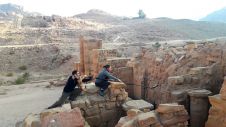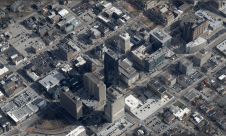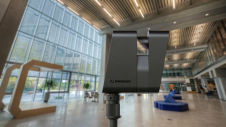Remote sensing
Remote sensing is a fascinating field that revolves around the acquisition of Earth-related information without direct physical contact. It typically yields either point cloud data or imagery, both of which are subsequently processed within the realm of geographical information systems, playing a pivotal role in the field of cartography.
One of the defining characteristics of remote sensing lies in the differentiation based on the platform and sensor employed. The platforms used for remote sensing can span a wide spectrum, encompassing everything from orbiting satellites to high-flying aircraft, nimble drones, ground-based vehicles like cars, and even seafaring ships. Meanwhile, from a sensor perspective, remote sensing is an expansive domain that includes techniques such as photogrammetry, lidar, and echosounding, each offering unique insights into our planet.
It's worth noting that the transformation of remotely sensed data into comprehensible and valuable products often necessitates a process known as ground truthing, which helps to validate and refine the collected information. This multifaceted field of remote sensing continues to evolve, unlocking new ways to observe and understand our world from a distance.

Value staying current with geomatics?
Stay on the map with our expertly curated newsletters.
We provide educational insights, industry updates, and inspiring stories to help you learn, grow, and reach your full potential in your field. Don't miss out - subscribe today and ensure you're always informed, educated, and inspired.
Choose your newsletter(s)
























